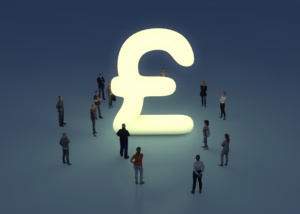Traditionally, B2B marketing has operated from a very different playbook from B2C marketing. Many believed that B2B marketing was another beast entirely, and that it was foolish to try and implement B2C strategies as part of your B2B marketing campaign. This 2012 article from CBS clearly summarises this mindset:
Many executives wrongly believe that selling to businesses is the same as selling to consumers. As a result, they employ strategies that have worked in consumer-oriented businesses, like brand marketing, advertising, value pricing, and so forth.
If your approach to B2B marketing still sees B2B and B2C as completely separate strategies, your B2B marketing strategy might already be dead in the water.
The Present
Fast forward to the present day. While there are still key elements that differentiate B2B from B2C marketing strategies, there’s a growing interest in areas where B2B can learn from B2C. One of those areas is personalisation.
Tom Dougherty, UX Director at Delete, further unpacks the current state of B2B personalisation:
So, what’s next? The first step is to develop a digital strategy focused on improving the customer experience through personalisation for prospects and customers.Using a data-led approach to drive advertising and customise content is, historically speaking, a B2B strategy but one used in the consumer space. It's slightly ironic then that not more B2B companies are taking this approach to their marketing to further build a deeper relationship with customers.
Personalisation is the Future of B2B Marketing
In personalised B2C marketing, data and digital tools are used to deliver a marketing message that is more relevant to an individual. B2B marketing, which long focused on treating companies and businesses as these singular, monolithic entities, is embracing the idea of personalisation and custom messaging that recognises individuals within an organisation. This approach offers clear advantages over the more traditional approach to B2B marketing.
Here are 5 key benefits of B2B personalisation:
- • Reduce friction on the way to conversion – There’s already a lot of red tape in the B2B space. You can use the data you have from previous engagements with a B2B client to improve the customer experience. For example, by pre-populating a form.
- • Improve ROI for video content – Written content is usually what people think of when it comes to personalisation, but you can also make use of personalisation to share more relevant video content. For example, a first time visitor to your website could be shown a video about your company, while someone who has visited before could be shown a video about your latest products.
- • Increase email engagement – Mass template-based emails with the main goal of increasing sales could turn customers off and damage your brand. By adding references to the company or key individual you’re trying to reach, or implementing dynamic content, could dramatically increase your engagement.
- • Build trust and a sense of loyalty – Whether it’s email, video or website content, your prospects want content that shows you understand what they want. By keeping it relevant, empathic and personal, you’re demonstrating that you understand this and will nurture trust and loyalty.
- • Engage visitors and increase time on site – Do your website and social media channels offer content that’s relevant to your prospects? You need to ensure that you offer content that is relevant to each customer segment and every stage of your marketing funnel or customer journey.
Partner with a B2B lead generation agency that understands the importance of personalisation
GCL Direct is a lead generation and telemarketing organisation with over 29 years of experience. We understand that personalisation is key, which is why our telemarketers don’t rely on scripts, and will deliver relevant content to a prospect in the language they speak.
To discover more about GCL Direct’s telemarketing and lead generation services, check out our ebook, The Best Kept Secrets in B2B Marketing, or contact us today.








